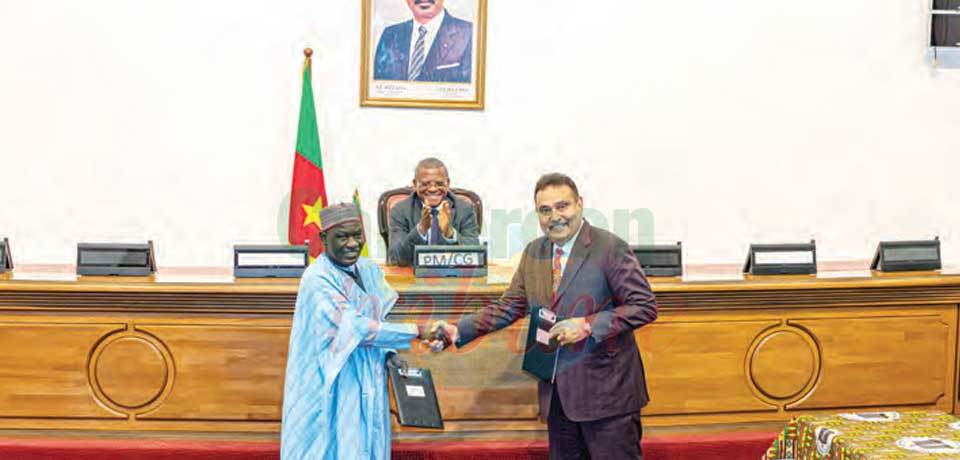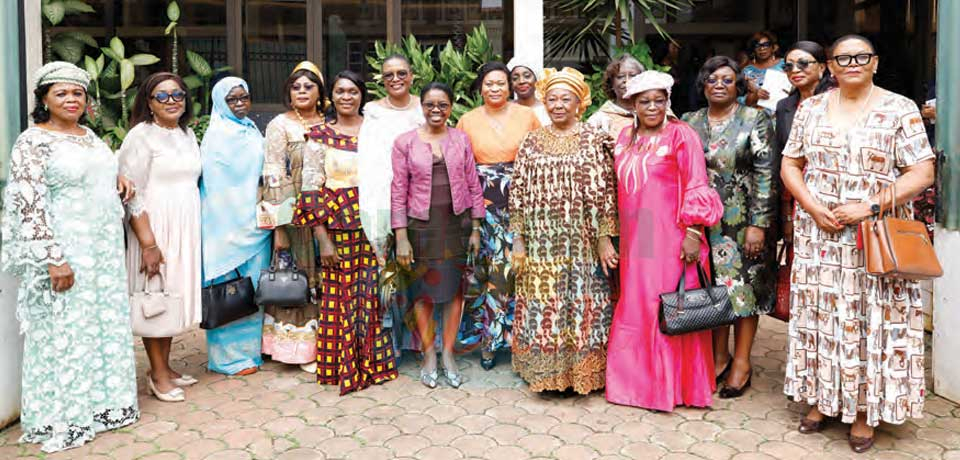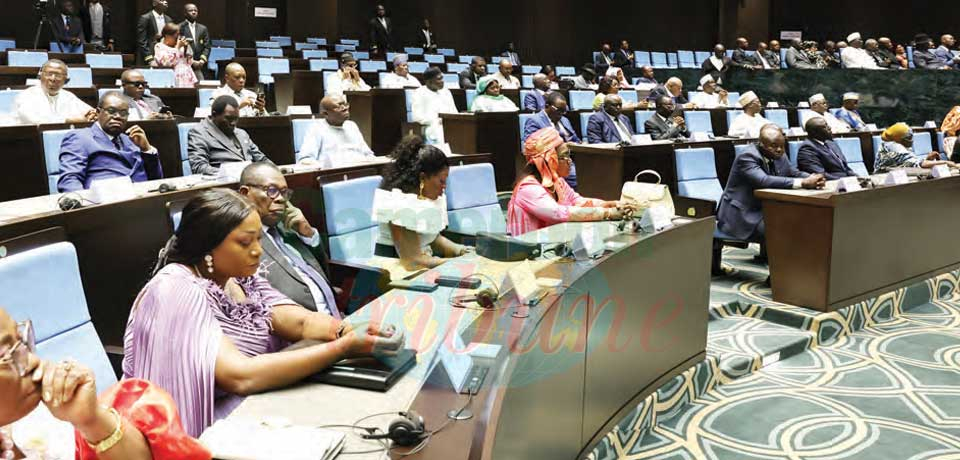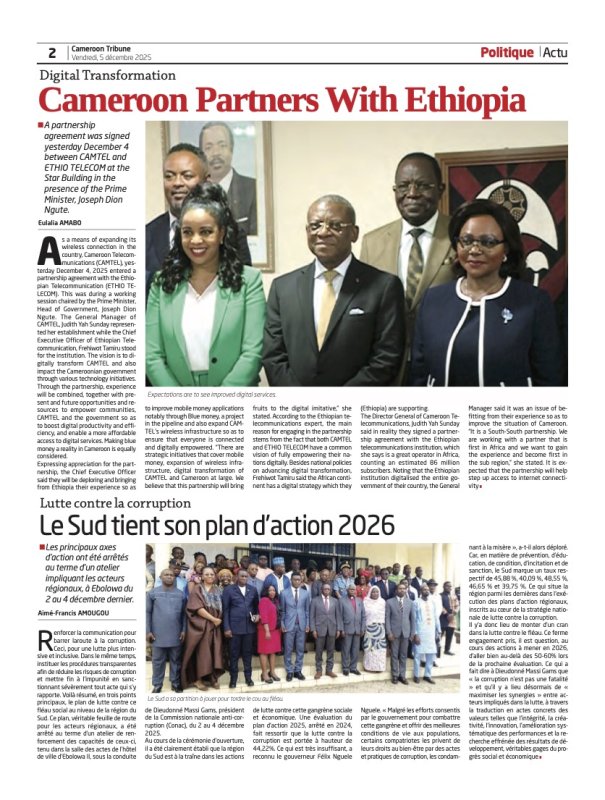Transboundary Transhumance, Security : Involving Stakeholders In Seeking Lasting Solutions
- Par Kimeng Hilton
- 11 Jul 2023 14:47
- 0 Likes

The International Organization for Migration held a side event on July 10, 2023 at the opening of the Second Ministerial Conference on Transboundary Transhumance in Yaounde, Cameroon.
The Second International Ministerial Conference on Transboundary Transhumance - Nexus: Transhumance, Protected Areas and Natural Resources, Development, Peace and Security holds in Yaounde, Cameroon from July 10-12, 2023. Taking advantage of this all-important gathering, the International Organization for Migration, IOM, Cameroon in partnership with the Konrad Adenauer Foundation and other stakeholders, organized a side event in Yaounde on Monday, July 10, 2023.
Multistake Discussion Panel
The side event was moderated by Abdel Rahmane Diop, the IOM Chief of Mission to Cameroon. While the panel members were the Permanent Secretary in the Ministry of Environment, Nature Protection and Sustainable Development, Prof. Paul Tchawa; Ulf Laessing, Head of Sahel Programme at KAS, Mali, and Marie Tamoifo Nkom of the “Réseau des Jeunes des forêts d'Afrique Centrale, REJEFAC, Cameroon.”
Other panel members were Hind Aissaoui Bennani, the Regional Thematic Specialist for Migration, Environment and Climate, IOM Regional Office, Dakar, Senegal; and Ahmed Djiga, an environmental lawyer and former Technical Advisor to the Minister of Energy, Burkina Faso. The Charge d’Affaires in the Canadian High Commission in Cameroon also took active part in the discussions.
Discussion Theme, Possible Solutions
The theme of the discussion was, “Practical solutions to migration, security and climate change: Initiatives and engagement from civil society and the UN to address and resolve challenges.” The first recommendation was the need for continuous, detailed studies on transhumance. No one can pretend to have all the solutions to the problem. The second recommendation was to step up coordination between stakeholders – states, the United Nations, the civil society and donors,” said Abdel Rahmane Diop, the IOM Chief of Mission to Cameroon.
Inclusive Action
“Our quest for solutions must be inclusive – we must never take any action without involving the people who bear the brunt of the problem. Avenues will be created for people to express their points of view for solutions to be identified. We emphasized that transhumant populations should not be stigmatized. We agreed that if well managed, transhumance benefits both migrants and the host community. Our recommendations were reached in a consensual manner. This is a good basis for going forward to implement them,” Abdel Rahmane averred.
Global Compact for Migration
“Donors were also represented at the meeting. We believe this will ease the task of sourcing for funding to implement the recommendations. We insist on making use of existing platforms. For example, Cameroon signed the Global Compact for Migration. We will be carrying out a regional revision of the agreement in 2024. This will be an opportunity for Cameroon to contribute to the revision by chipping in its local realities. We would like to take advantage of opportunities and move on,” Diop clarified.
Supporting Unprotected People
“IOM represents a massive chunk of the world’s people who are not refugees. These are people without specific status to be entitled to protection, but deserve to be supported. Such people include transhumant populations,” Abdel Rahmane disclosed. The workshop, which was attended by representatives of various organizations - the civil society, UN agencies and UN member states - sought practical solutions to transboundary transhumance.
Encouraging Outcomes
“I am happy and delighted at the results we achieved. The outcomes include continuous diagnosis of the problem to understand the root causes and challenges of transhumance. Such diagnosis evolves with changing times. The second is improving coordination between actors. As well as seeking ways to complement each other. We must include everyone in the search for solutions and steer away from stigmatizing transhumants,” the IOM chief cautioned.
Involving Pastoralists
“The side event organized by IOM responded to some concerns in the quest for solutions to cross-border transhumance. We need to involve pastoralists for the purposes of equity, sustainability and the attainment of development objectives. The animal component of transboundary transhumance is crucial because it contributes to food security. Over the years, we noticed that pasture sizes have been dwindling, compared to the increasing number of animals, which are not necessarily Cameroonian.
In Concert With Neighbouring Countries
“It is important to create an exchange and collaboration forum with neighbouring countries to handle the influx of cattle into Cameroon. Through this, we hope to ensure that foreign cattle do not constitute a threat to the cattle owned by Cameroonians,” the Permanent Secretary in the Ministry of Environment, Nature Protection and Sustainable Development underscored.
Land Use Planning For Northern Cameroon
“We examined possible solutions to the challenges. But I believe further studies need to be carried out. Cameroon, for example, has land use plans for the southern half of the country, which is forested. But beyond this area, there are no land use plans. We need to develop land use plans for the northern part of the country in line with the 2030 National Development Objectives,” Prof. Paul Tchawa suggested.
Carefully-considered Solutions
“Solutions to transboundary transhumance must not be haphazard. We have a choice between integration, optimization of classic nomadism, and the drive towards ranching. If we opt for intensive pastoralism or ranching, we may gain more in terms of animal protein production. But a great majority of our pastoralists will be left out,” Prof. Paul Tchawa warned. “The other challenge is rejuvenation. Will the children of today’s pastoralists keep up this manner of animal breeding? This is a challenge for decision-makers as well as other stakeholders,” Prof. Tchawa noted.
Hands-In-Glove
“All ministries concerned with transboundary transhumance need to work together. It is not for nothing that dignitaries are gathered in Yaounde for the Second International Ministerial Conference on Transboundary Transhumance - Nexus: Transhumance, Protected Areas and Natural Resource...
Cet article complet est réservé aux abonnés
Déjà abonné ? Identifiez-vous >
Accédez en illimité à Cameroon Tribune Digital à partir de 26250 FCFA
Je M'abonne1 minute suffit pour vous abonner à Cameroon Tribune Digital !
- Votre numéro spécial cameroon-tribune en version numérique
- Des encarts
- Des appels d'offres exclusives
- D'avant-première (accès 24h avant la publication)
- Des éditions consultables sur tous supports (smartphone, tablettes, PC)














Commentaires